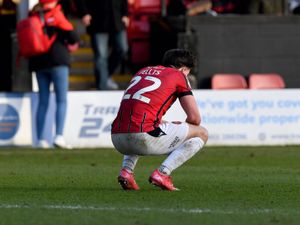Key report in West Midlands velodrome bid to finally be published
A long-awaited report expected to boost the campaign for building a velodrome in the West Midlands is finally set to be published in the next fortnight.

The technical review into the construction of lower cost velodromes was commissioned by British Cycling more than two years ago and has been subject to continual delays.
But it is now due to be released by the end of the month, in what could be significant milestone in the bid to build a training facility as a legacy to the Birmingham 2022 Commonwealth Games.
West Midlands Mayor Andy Street previously pledged to examine the business case for an indoor velodrome once the review is published and the delays have been a huge source of frustration to the campaign team.
Last month they successfully secured the release of an earlier version of the report via a freedom of information request to Sport England, which part funded the study. Dated November 2021 and seen by the Express & Star, it concludes a training velodrome could be built for just £5million.
British Cycling insists that version is only a draft and figures are currently being revised ahead of publishing the final report. It blames the delay to its release on volatility in the construction market, in particular the cost of steel and oil.
Yet campaigners believe whatever figure is included in the final report will back-up their claim a velodrome would cost significantly less than the £40m-plus first estimated when it was decided no facility would be built for Birmingham 2022.
More than 9,000 people have now signed a petition started in 2017 when it emerged track cycling events at the Games would instead be staged more than 100 miles from the West Midlands at London’s Lee Valley Velodrome.
Prominent supporters of the campaign include three-times Tour de France winner Greg Le Mond and Brian Cookson, former head of cycling’s world governing body, the UCI. Last month Cookson called for some of the £60m surplus from Birmingham 2022 to be spent on building a velodrome in the region.
Campaigners believe building a velodrome will increase participation levels and help boost cycling’s diversity and point out a facility could host other sports and events.





